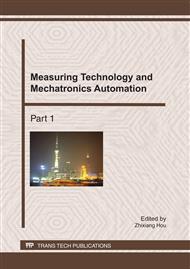p.579
p.584
p.589
p.593
p.599
p.603
p.607
p.611
p.617
Identity-Based Convertible Limited Verifier Signature Scheme in the Standard Model
Abstract:
A convertible limited verifier signature (CLVS) can be used to solve conflicts between authenticity and privacy in the digital signatures. In a CLVS scheme, the signature can be verified by a limited verifier. When necessary, the limited verifier can provide a proof to convince a judge that the signer has indeed generated the signature. However, the judge cannot transfer this proof to convince any other party. Also, the limited verifier signature should be converted into an ordinary one for public verification if required. In this paper, we proposed firstly identity-based converible limited verifier signature scheme in the standard model. We give the security proofs of our scheme and show that Our scheme achieved the desired security notions in the standard model (without random oracle).
Info:
Periodical:
Pages:
599-602
DOI:
Citation:
Online since:
February 2011
Authors:
Price:
Сopyright:
© 2011 Trans Tech Publications Ltd. All Rights Reserved
Share:
Citation:


